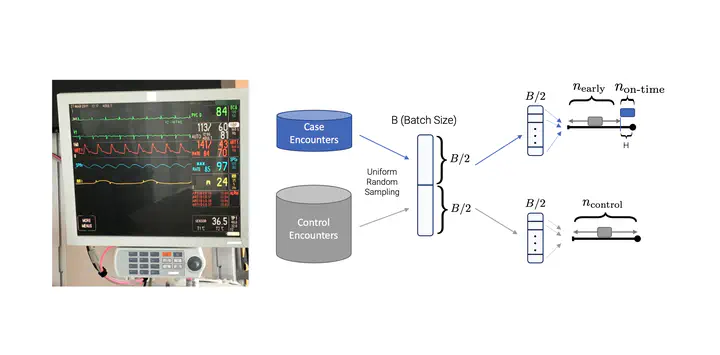Time-Aware Deep Sequential Models for In-Hospital Code Blue Prediction using Monitor Alarms

Abstract
Bedside monitor alarms are valuable for predicting Code Blue events in hospitals and have led to developments in data-driven approaches aimed at reducing the issue of excessive false alarms (alarm fatigue). We investigate the importance of time-awareness in Code Blue prediction of LSTM models. We select two types of alarm-based datasets for our training and evaluation – (i) a dataset of raw alarms and (ii) a dataset of “super alarms” obtained by using the Co-occuring Token (CoT) framework. We compare simulated online evaluation performance and find improvements with the addition of time-awareness, while also observing notable differences in performance of super alarms vs. raw alarms.
Type
Publication
In 2023 IEEE EMBS International Conference on Biomedical and Health Informatics (BHI), 1-page Extended Abstracts